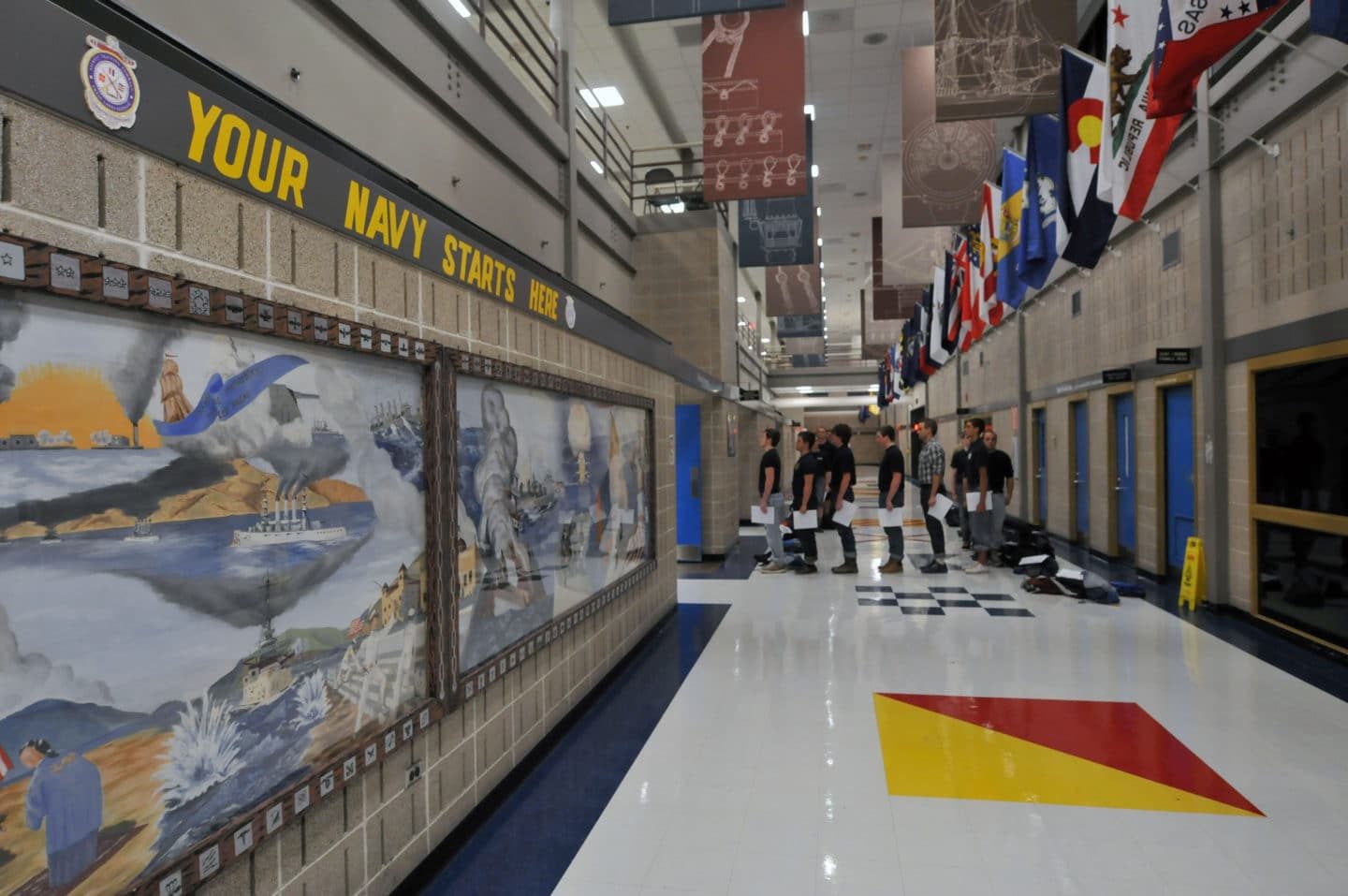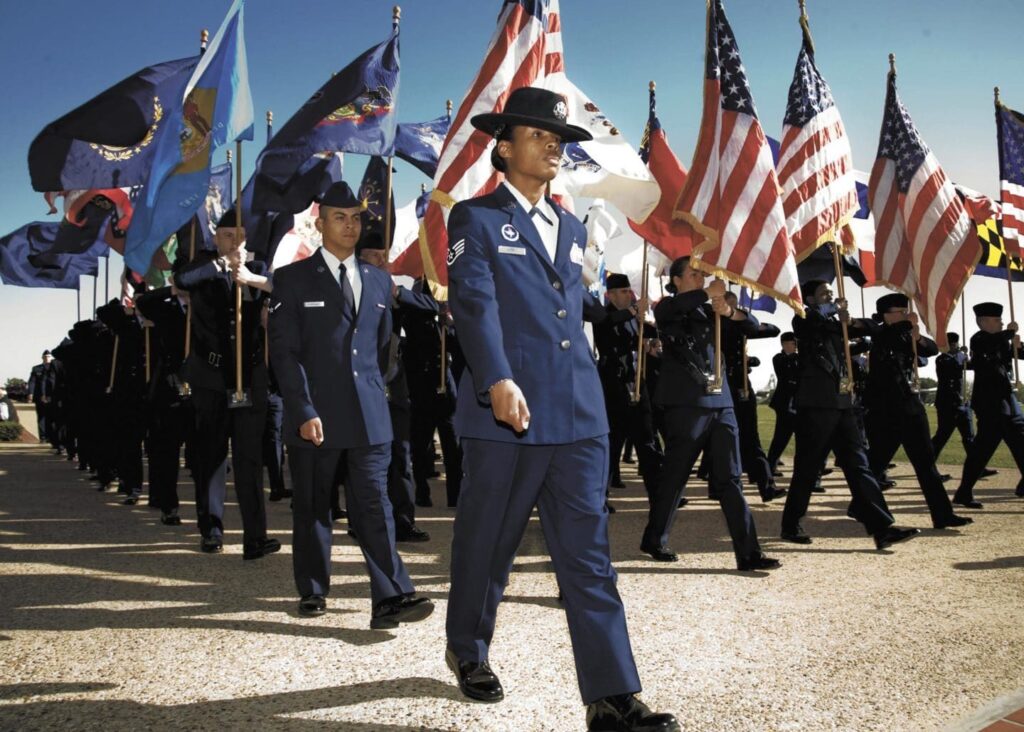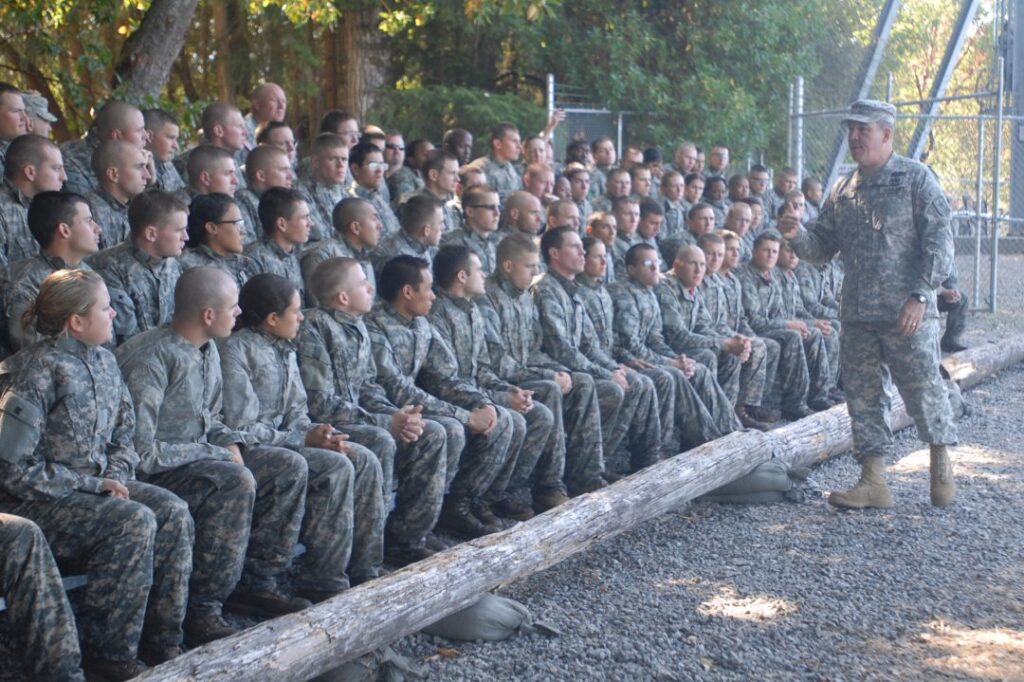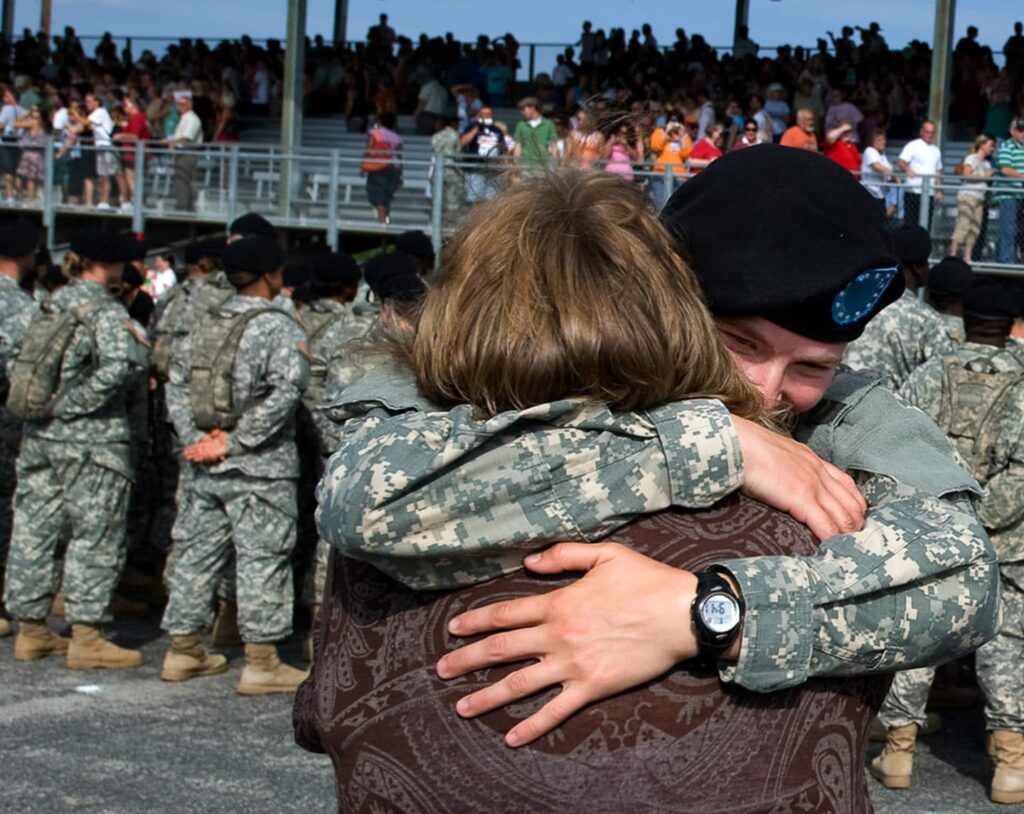
- The App
- Sandboxx News
- Resources
Learn
- Company
About
Become a Partner
Support
- The App
- Sandboxx News
- Resources
Learn
- Company
About
Become a Partner
Support

Navy training will test recruits to see if they have what it takes to become a United States Sailor. But before your recruit makes it to graduation there are a lot of tasks they must accomplish. Here’s a general overview of the process joining the Navy and the events that take place at RTC Great Lakes during the first few days.
Your recruit’s Navy experience will begin at MEPS. A recruit is poked, prodded, tested, and questioned until he or she is pronounced fit for the US Navy and is presented with a contract. There are two important things about the MEPS visit that parents and spouses need to know. Recruits can have an advisor with them to help read the contract.
Families can also be present at the swearing in ceremony. This moving event marks the official moment of membership in the United States Navy. Although photography is not allowed during the oath, most MEPS’s will give time after the ceremony for ‘staged’ pictures to be taken. Note that the time of the swearing in is never in stone. If your family decides to attend, prepare for a long wait.
After swearing in, your recruit will be given an airline ticket, and taken by van to the airport. Most people do not know that immediate family members of the recruit are allowed to go through security and wait at the gate until departure. To get a pass, ask at the ticket counter of the airline your recruit is flying. You’ll need a form of photo identification.
When a recruit lands at Chicago O’Hare, he or she must find the USO. From there, they are taken on a bus to RTC Great Lakes. Note that recruits who have cell phones can call home from Chicago, but the call should be made before arriving at the USO.
At RTC Great Lakes, all recruits are allowed a ten-second call to let their family know they have arrived. Recruits that still have a cell phone make the call from their personal phone; others use telephones provided by the Navy.
The conversation will go something like this: “Hi. I’m here. Bye.” At this point, communication virtually stops for several weeks.
As soon as recruits are assigned a division, they have an address. In the past, family members could contact the Public Affairs Office at Great Lakes and be given the address. Now, a family must either call the recruiter for the address, wait for the recruit to send it home in ‘the form letter’, or view the mailing address here.
Before the form letter arrives, the family will receive a box with all the clothes and personal effects of the recruit. There may also be airline boarding passes, labels torn from new clothing, or paperwork from the Navy. The box is delivered by Fed-Ex, and is addressed in the recruit’s handwriting. For many, receiving the box is an unexpectedly emotional moment.
About one week into boot camp, the family will receive a form letter from the recruit. The envelope will be addressed in the recruit’s handwriting. The letter will thank you for supporting your recruit, give a general overview of boot camp, emergency instructions, and a preliminary invitation to Graduation Pass-In-Review. The letter is signed by the Commanding Officer at Recruit Training Command. On the second page, your recruit will write his or her division, and you’ll officially have the boot camp address. At the very end of the letter are three lines on which your recruit can write a personal message.
Recruits are only supposed to write home on Sunday, and that’s when letters get mailed. Depending on where you live, you can pretty much count on a letter on the same day of the week if your recruit writes. If you ask, many letter carriers will ring the doorbell or blow their horn as they deliver a missive from RTC. You can get mail to your recruit faster by using the Sandboxx app. Learn more about sending Letters to navy boot camp.
Since you can’t always be at home, it is recommended that you enable call forwarding. At some point in the first few weeks, probably when you least expect it, your recruit will call home. He or she will most likely sound tired, sick, and depressed. The call may be so long that you may have trouble thinking of enough to talk about. Make a list of questions to ask your recruit so that if the conversation lags, you’ll have something to say.
If your recruit doesn’t have one, it’s not too late to send a Phone Card! Note that most phone cards have connection fees – minutes are deducted from the face value of the card each time a call is made. This means that a 100 minute card could lose 50 minutes just for leaving a message on an answering machine! If you’re worried this may happen to your recruit, send them another card.
Details via Helen151 on Questions.com




